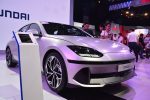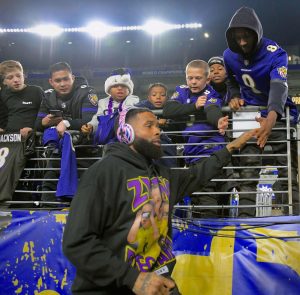
Hyundai and Kia See Strong Demand for EVs Despite Inflation Challenges and Rival Concerns
Hyundai and Kia are experiencing robust demand for electric vehicles (EVs) in the United States, according to senior executives who spoke to Reuters ahead of the Los Angeles Auto Show. This positive outlook defies concerns within the industry that inflation and higher interest rates might impede the growth of EV sales.
Jose Munoz, Hyundai’s global chief operating officer, expressed optimism about the future of battery electric vehicles, highlighting that the company’s EV sales have been doubling year-over-year. Munoz also emphasized the acceleration of investments in the battery electric plant in Savannah, Georgia, stating that they are pushing to have it ready by October next year. He conveyed a strong bullish sentiment, indicating that if more capacity were available today, they could sell more EVs.
Kia, which is 34% owned by Hyundai, shares a similar perspective. Steven Center, chief operating officer at Kia America, mentioned that the company continues to grow organically despite economic challenges. He affirmed that Kia is not witnessing a slowdown and is actively expanding into additional segments that will contribute to the growth of EVs.
The current economic climate, marked by inflation and high interest rates, has raised the costs of purchasing a car. However, Munoz and Center emphasized that their companies are pushing forward, and the demand for EVs remains strong. Electric-vehicle manufacturers, in general, are contending with supply-chain bottlenecks and pricing pressure, notably from Tesla, which implemented EV price cuts this year.
The average price paid for a new EV in the United States has decreased, falling from over $60,000 in January to just over $50,000 in September, according to Cox Automotive. These price cuts have contributed to a 50% increase in EV sales in the third quarter compared to the previous year.
Despite these positive trends, some industry leaders, including Tesla CEO Elon Musk, have expressed caution about expanding factory capacity amid concerns about interest rates. Other startups, such as Lucid and Fisker, have adjusted their 2023 production targets, reflecting a degree of uncertainty in the market.
Consumer intentions also play a role in shaping the EV landscape. Approximately one in four Americans in the market for a new car express an interest in buying an EV, according to the Langston Co. However, there are concerns that as early adopters transition to EVs, there might be a challenge in sustaining high demand for the category.
While uncertainties persist, industry participants, such as Subaru’s CEO Atsushi Osaki, remain committed to the EV market. Osaki acknowledged potential short-term stagnation due to inflation but expressed confidence that battery EVs could constitute about half of Subaru’s sales by 2030.
Source: Reuters

